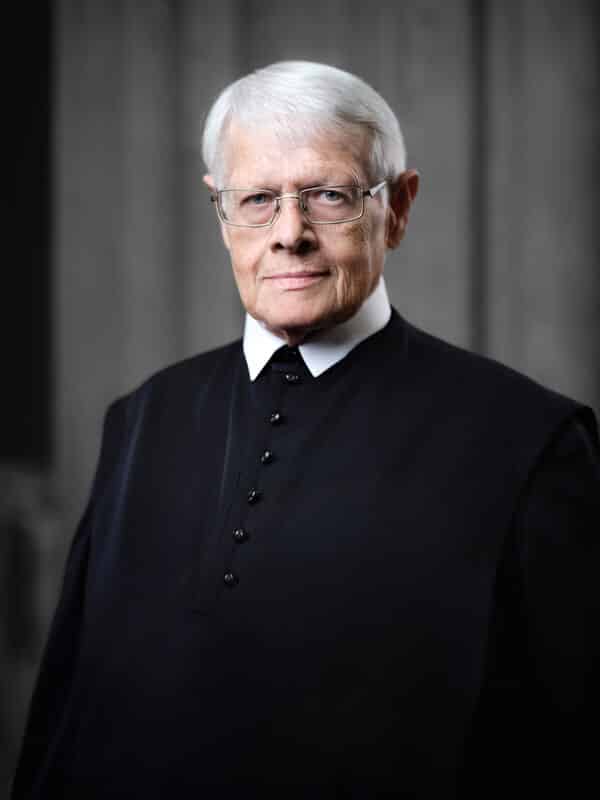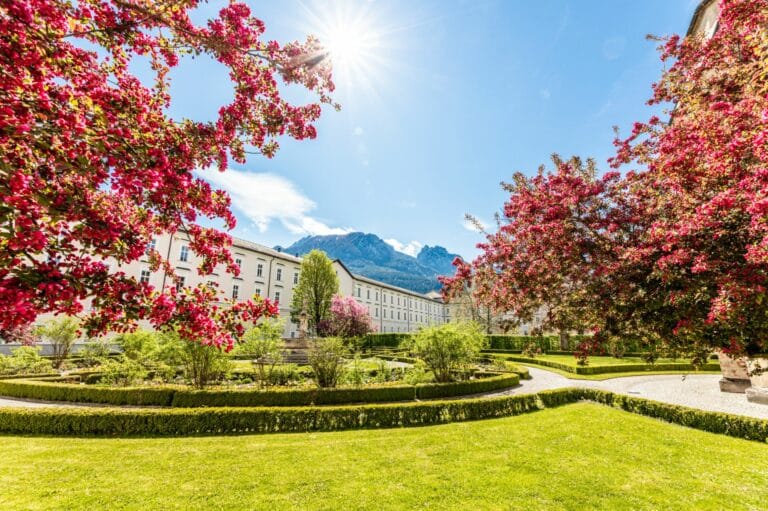When I'm needed, I'm there
Caring for the sick is a basic mission of Benedictine monasteries. At Admont Abbey, it is Father Gabriel Reiterer who has an open ear for people in need of care, administers the sacraments and celebrates church festivals with them.
The abbey library in Admont houses 70,000 volumes. If the archive is included, the book collection of the Benedictine Abbey of Admont comprises around 200,000 works. A significant proportion of these are books on pharmacy and medicine. They contain historical recipes for the production of medicines, tinctures, ointments and herbal teas. Some of these recipes are still used today in the monastery pharmacy in Admont, such as the clarifying drops to aid digestion. The authors of these books were monks who wrote down their knowledge of medicinal plants and thus paved the way for modern medicine. Herbs and medicinal plants were grown in the monastery's own garden, which still exists today at the Benedictine monastery in Admont. After all, caring for the sick is firmly anchored in the Rule of St Benedict, the founding father of the Benedictine order, and is therefore a fundamental mission of the monastery, both then and now.
Out of Christian charity
In addition to caring for the sick, caring for people in need of care is also an essential aspect of Christian charity. Built in 1724 as a place of pilgrimage, the historic building next to the pilgrimage church on the Frauenberg now serves as a nursing home. For many years, Admont's Benedictine monks ran the facility themselves. Now Caritas runs the nursing home on the Frauenberg in close cooperation with the foundation's operations. Father Gabriel Reiterer also works here.
The Benedictine monk celebrates services in the in-house chapel, provides pastoral care, administers the sacraments and is a welcome dialogue partner.
Give the gift of time, bring joy
Father Gabriel often simply gives his time. Then he sits in the large conservatory, which serves as a lounge and common room, chatting with the senior citizens
and plays cards. After all, he says, giving pleasure is also an essential part of caring for sick and elderly people. He doesn't forget the caring staff either. He gives each member of staff a small birthday greeting. On their day of honour, Father Gabriel presents them with wine, homemade jam and a small booklet with his own photographs of flowers.

Celebrating church services together
Every Friday, he celebrates Holy Mass with the residents in the home's own chapel and administers communion. In addition to the weekly services, Father Gabriel is also very keen to celebrate the Easter liturgy: "I want to give people the opportunity to celebrate Easter, the highest festival of the Christian faith, together." Father Gabriel is also on site at Christmas to organise Holy Mass and an evening of music and singing. Once a year, the Benedictine monk holds a memorial service for those who have died in the past weeks and months. He has even celebrated a requiem in the small chapel in the nursing home. After each death, Father Gabriel places a picture of the deceased on the altar and lights a candle to symbolise eternal life.
The ear close to the people
Once a month, the Benedictine monk administers the anointing of the sick during the Friday service. This sacrament is administered in cases of old age, illness or accident. For in St James 5:13-15 we read: "If any of you is troubled, let him pray. If any of you is cheerful, let him sing praises. If any of you is sick, let him call the elders of the church to him. They should say prayers over him and anoint him with oil in the name of the Lord. Faithful prayer will save the sick person and the Lord will raise him up. If he has committed sins, they will be forgiven." And even outside of Holy Mass, the priest is repeatedly called upon by relatives to administer the anointing of the sick. A request that he is happy to fulfil, because "when a person is at the end of their earthly existence, it is important for them to feel that they are not alone and that God is there to help them." The time of day or night doesn't matter, as Father Gabriel emphasises: "When I'm needed, I'm there." And he has been for around ten years. He is no longer only referred to as "our chaplain" by residents. Staff also seek to talk to the Benedictine monk. "Sometimes it's good just to have someone to talk to. I would never impose myself, but if someone is looking for a sympathetic ear, they will always find it with me," says Father Gabriel.





